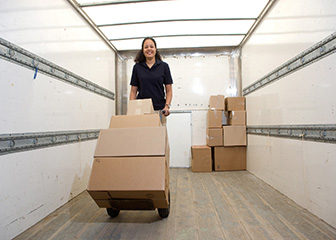Summary

| Quick Facts: Couriers and Messengers | |
|---|---|
|
$24,080 per year
$11.58 per hour |
|
| High school diploma or equivalent | |
| None | |
| Short-term on-the-job training | |
| 116,200 | |
| 13% (About as fast as average) | |
| 14,600 | |
What Couriers and Messengers Do
Couriers and messengers transport documents and packages for individuals, businesses, institutions, and government agencies.
Work Environment
Couriers and messengers usually travel by foot, bicycle, motorcycle, automobile, or public transportation. While most couriers and messengers work full time during regular business hours, evening and weekend hours are common.
How to Become a Courier or Messenger
Although there is no formal education requirement, employers generally prefer to hire high school graduates. Most couriers and messengers train informally on the job.
Pay
The median annual wage for couriers and messengers was $24,080 in May 2010.
Job Outlook
Employment of couriers and messengers is expected to grow 13 percent from 2010 to 2020, about as fast as the average for all occupations. Job prospects should be best for those who deliver sensitive items, such as blueprints and medical samples.
Similar Occupations
Compare the job duties, education, job growth, and pay of couriers and messengers with similar occupations.
O*NET
O*NET provides comprehensive information on key characteristics of workers and occupations.
Contacts for More Information
Learn more about couriers and messengers by contacting these additional resources.






